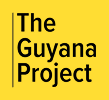Close

The People’s Progressive Party Civic (PPP/C) has launched its manifesto under the theme “One Country, One People, One Future – Forward Together for a Better Guyana”, outlining strategies that seek to balance social development with prudent management of oil revenues (Department of Public Information).
A key feature of the plan is recognition of risks linked to fluctuating global oil prices. The document cautions against over-reliance on petroleum earnings, noting that price shocks in the international market could severely impact economies that are not diversified. The manifesto proposes policies aimed at shielding Guyana from these vulnerabilities by directing investment into a broad range of growth sectors including hospitality, agriculture, biotechnology, and strengthened trade relations with Brazil (Ministry of Finance).
The manifesto also identifies the potential danger of Dutch Disease, a situation where traditional sectors such as agriculture and manufacturing become uncompetitive due to exchange rate pressures from rising oil revenues. To counter this, the PPP/C sets out a framework for economic diversification and the creation of “new growth poles” to ensure that jobs and incomes are not concentrated solely in the extractive industries. This, the plan suggests, will provide more sustainable growth and stability over the long term (Ministry of Finance).
Climate vulnerability is another area highlighted. The manifesto outlines measures to build resilience through large-scale drainage and irrigation projects, the rehabilitation of key infrastructure, and the installation of new pumps and kokers. These investments are intended not only to protect communities from flooding but also to support agricultural expansion and safeguard livelihoods (Ministry of Agriculture).
The global context is also addressed. The manifesto acknowledges that international events such as geopolitical conflicts can affect the prices of essential imports like food and fuel. To mitigate such risks, the plan stresses the importance of careful fiscal management, foreign exchange stability, and policies that strengthen domestic production (Department of Public Information).
Other political parties have presented proposals that promise significant increases in pensions, salaries, and grants. While these commitments are also aimed at improving welfare, the PPP/C’s manifesto places emphasis on balancing social support with measures to preserve macroeconomic stability. According to the party, its approach is not a list of unattainable promises but a structured declaration of intent, based on extensive consultations with citizens and the private sector (Department of Public Information).
The manifesto’s central message is that responsible management of oil wealth, combined with economic diversification and resilience planning, is essential for safeguarding Guyana’s future.

The Guyana Project is an independent media platform delivering fact-checked, ground-level reporting on politics, economy, and public life in Guyana. With a focus on transparency and development, we bring unfiltered news and thoughtful analysis to help shape a more informed, forward-looking nation.

Risk Management in Oil Economy

Lorem Ipsum is simply dummy text of the printing and typesetting industry. Lorem Ipsum has been the industry’s standard dummy text ever since the 1500s, when an unknown printer took a galley of type and scrambled it to make a type specimen book. It has survived not only five centuries, but also the leap into electronic typesetting, remaining essentially unchanged. It was popularised in the 1960s with the release of Letraset sheets containing Lorem Ipsum passages, and more recently with desktop publishing software like Aldus PageMaker including versions of Lorem Ipsum.
t is a long established fact that a reader will be distracted by the readable content of a page when looking at its layout. The point of using Lorem Ipsum is that it has a more-or-less normal distribution of letters, as opposed to using ‘Content here, content here’, making it look like readable English. Many desktop publishing packages and web page editors now use Lorem Ipsum as their default model text, and a search for ‘lorem ipsum’ will uncover many web sites still in their infancy. Various versions have evolved over the years, sometimes by accident, sometimes on purpose (injected humour and the like).
Contrary to popular belief, Lorem Ipsum is not simply random text. It has roots in a piece of classical Latin literature from 45 BC, making it over 2000 years old. Richard McClintock, a Latin professor at Hampden-Sydney College in Virginia, looked up one of the more obscure Latin words, consectetur, from a Lorem Ipsum passage, and going through the cites of the word in classical literature, discovered the undoubtable source. Lorem Ipsum comes from sections 1.10.32 and 1.10.33 of “de Finibus Bonorum et Malorum” (The Extremes of Good and Evil) by Cicero, written in 45 BC. This book is a treatise on the theory of ethics, very popular during the Renaissance. The first line of Lorem Ipsum, “Lorem ipsum dolor sit amet..”, comes from a line in section 1.10.32.